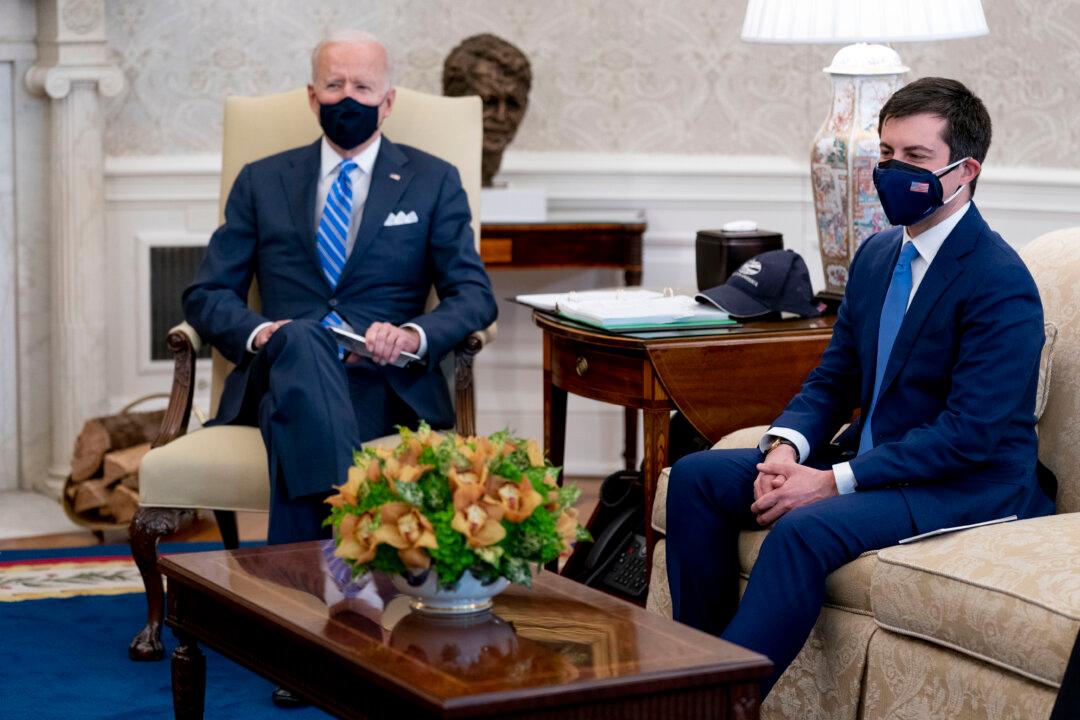Transportation Secretary Pete Buttigieg on Friday said a proposal that would tax Americans for each mile they drive “shows a lot of promise.”
Asked about various possible funding mechanisms for what’s expected to be a multi-trillion dollar infrastructure bill from the White House, Buttigieg said a mileage tax looks promising.





